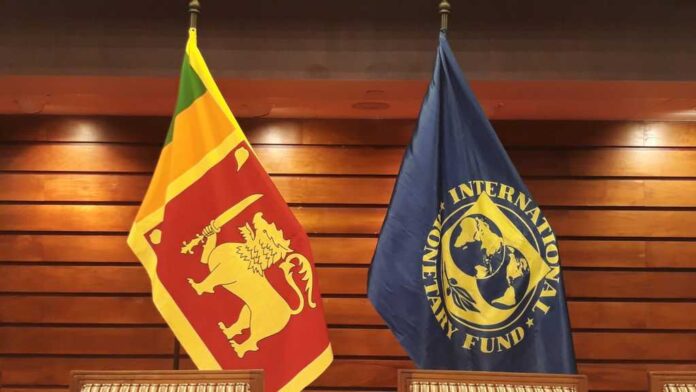By: Staff Writer
May 02, Colombo (LNW): In April 2025, Sri Lanka reached a crucial staff-level agreement with the International Monetary Fund (IMF) for the Fourth Review of its Extended Fund Facility (EFF) program.
If approved by the IMF Executive Board, the agreement will release around US$344 million in financial support, adding to the US$1.72 billion already disbursed under the program since its inception in March 2023 Mission Chief Evan Papageorgiou said..
The IMF acknowledged that Sri Lanka’s overall performance under the EFF is strong. Notably, the economy rebounded with an impressive 5% growth in 2024, and public revenue rose significantly, with the revenue-to-GDP ratio improving from 8.2% in 2022 to 13.5% in 2024.
This surge is due to extensive reforms in revenue mobilization. In addition, foreign reserves climbed to US$6.5 billion by March 2025, aided by effective central bank interventions. These developments indicate that Sri Lanka is steadily moving out of its post-crisis slump through ambitious fiscal and structural reforms.
However, challenges persist. Approval of the next tranche hinges on two critical prior actions: restoring cost-reflective electr, he disclosed.
While a tariff hike is expected, it has yet to be implemented by the Ceylon Electricity Board (CEB), contributing to ongoing financial losses that burden national debt. IMF officials, while respecting the independence of local regulatory authorities, are urging prompt action to prevent further fiscal damage.
Additionally, Sri Lanka faces external threats. Uncertainty in global trade policy—especially the looming risk of U.S. tariffs on Sri Lankan exports—could undermine economic recovery. The Sri Lankan government has engaged U.S. trade officials in discussions to mitigate tensions arising from a trade surplus.
The IMF supports these diplomatic efforts and encourages continued dialogue to reduce trade friction and secure export stability, he added. .
Debt restructuring is nearing completion, and multilateral partners’ financing assurances are also under review. This marks a vital step toward long-term debt sustainability and investor confidence.
Sri Lanka’s progress reflects effective crisis management and a strong commitment to structural reform. The rebound in growth and fiscal stability is promising, yet the government’s ability to follow through with politically sensitive reforms—such as utility pricing—will determine whether this recovery is sustainable.
Furthermore, maintaining constructive international trade relationships, especially with key partners like the U.S., is essential to buffer against external shocks. While the IMF’s continued support boosts investor confidence, the need for urgent action on domestic reforms cannot be overstated. The current path offers hope, but only if Sri Lanka can balance reform momentum with socio-political stability.

